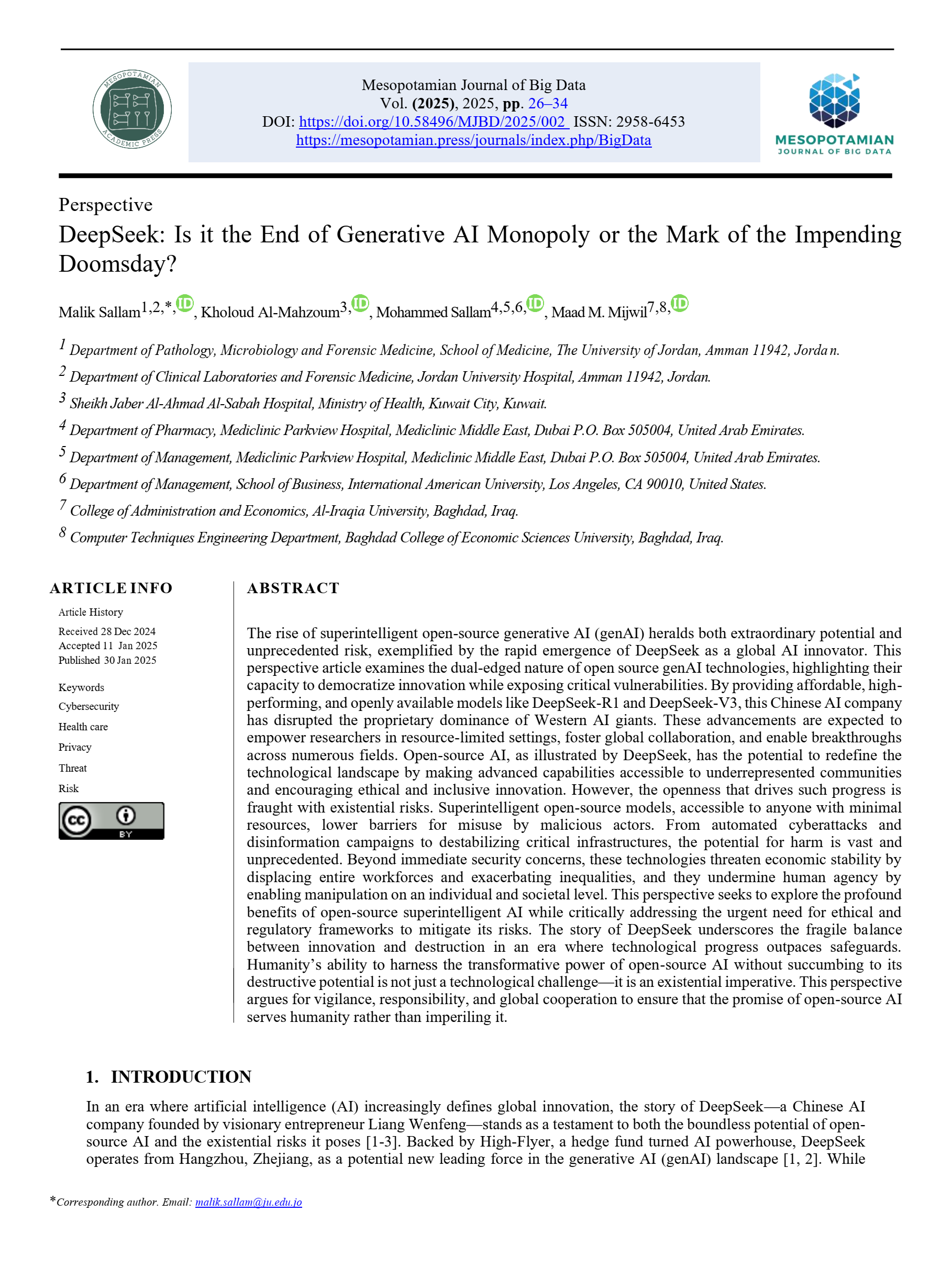DeepSeek: Is it the End of Generative AI Monopoly or the Mark of the Impending Doomsday?
Main Article Content
Abstract
The rise of superintelligent open-source generative AI (genAI) heralds both extraordinary potential and unprecedented risk, exemplified by the rapid emergence of DeepSeek as a global AI innovator. This perspective article examines the dual-edged nature of open source genAI technologies, highlighting their capacity to democratize innovation while exposing critical vulnerabilities. By providing affordable, high-performing, and openly available models like DeepSeek-R1 and DeepSeek-V3, this Chinese AI company has disrupted the proprietary dominance of Western AI giants. These advancements are expected to empower researchers in resource-limited settings, foster global collaboration, and enable breakthroughs across numerous fields. Open-source AI, as illustrated by DeepSeek, has the potential to redefine the technological landscape by making advanced capabilities accessible to underrepresented communities and encouraging ethical and inclusive innovation. However, the openness that drives such progress is fraught with existential risks. Superintelligent open-source models, accessible to anyone with minimal resources, lower barriers for misuse by malicious actors. From automated cyberattacks and disinformation campaigns to destabilizing critical infrastructures, the potential for harm is vast and unprecedented. Beyond immediate security concerns, these technologies threaten economic stability by displacing entire workforces and exacerbating inequalities, and they undermine human agency by enabling manipulation on an individual and societal level. This perspective seeks to explore the profound benefits of open-source superintelligent AI while critically addressing the urgent need for ethical and regulatory frameworks to mitigate its risks. The story of DeepSeek underscores the fragile balance between innovation and destruction in an era where technological progress outpaces safeguards. Humanity’s ability to harness the transformative power of open-source AI without succumbing to its destructive potential is not just a technological challenge—it is an existential imperative. This perspective argues for vigilance, responsibility, and global cooperation to ensure that the promise of open-source AI serves humanity rather than imperiling it.
Article Details
Issue
Section

This work is licensed under a Creative Commons Attribution 4.0 International License.
